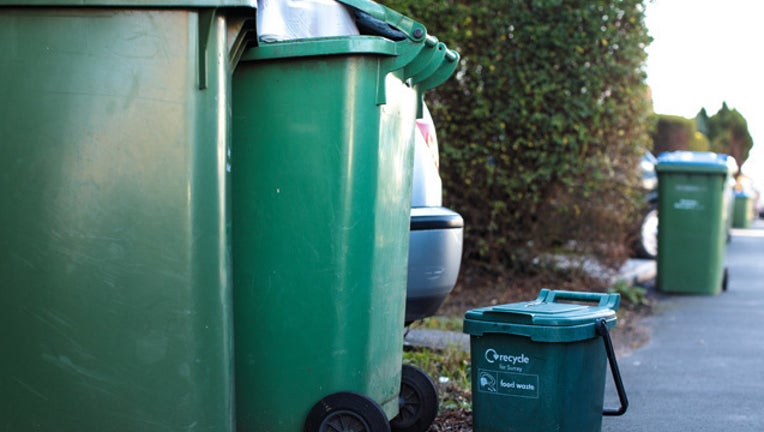City will test out on-call bulk collection program in parts of Central, Northeast Austin

(Photo by Jack Taylor/Getty Images)
%INLINE%Twice per year, Austin residents haul out their bulky trash items to the curb for the city to come and collect.
Now, some Austin Resource Recovery customers will not have to wait for those two predetermined weeks. Instead, they can call 3-1-1, and their trash items will be hauled away.
Austin Resource Recovery has started a pilot program to test out the on-call bulk collection service from now through December in portions of Central and Northeast Austin. Customers who live on either of the two city routes participating in the program received letters in the mail in March notifying them of the change. The map of the routes can be found here, via the city’s website.
Bulk trash collection for those customers will be by request only, and they can make a maximum of three requests during the duration of the program.
Austin Resource Recovery customers can call 3-1-1 to submit a request, it is recommended to call at least two days before the scheduled pickup, and someone from the department returns the customer’s call. The customer has to be prepared to tell the staff member what items are going to be set out and must set out a minimum of two large items per collection. Once the date is set, the customer sets out the items, and the clutter is hauled off.
In a letter sent to Mayor Steve Adler and the Austin City Council, Sam Angoori, Austin Resource Recovery interim director, said the program will have benefits for both the customer and the city. Customers on the route will not have to wait until the twice-per-year scheduled dates to get rid of their junk. The city, meanwhile, can reduce waste.
During the twice-per-year bulk trash collection, Angoori said many items end up in landfills because the trash is not properly separated on the curbside.
“Through the pilot program, crews will be informed in advance of what materials residents intend to dispose of, thereby dispatching the correct vehicle and reducing the amount of waste diverted to local landfills,” Angoori said.
Once the program ends, staff will analyze the data to see how effective it was and whether it was an improvement on the twice-per-year system. In early 2019, the staff will update the Zero Waste Advisory Commission on the data it found and will send a memo to council with recommendations on how to proceed in the future.
Correction: A previous version of this article stated that it was recommended customers leave out bulk items two days before the collection date. It's recommended customers call at least two days before the scheduled pickup date and set out items on the morning of the scheduled pickup.
-
From FOX 7's reporting partner Community Impact.

